|
Read the final edition of the AFAE news for 2018 – packed with new projects, publications, sound, research, awards, and highlights from the 20th Anniversary of the Australian Forum for Acoustic Ecology.
Read the newsletter online here: https://mailchi.mp/23314eb3313f/zs15vkf0r7-3370909 Just the AFAE here to receive the newsletter in your inbox.
0 Comments
This is a brief message to confirm our 2018 AGM will be held on Monday December 10th at 6:30pm AEST. Our AGMs are hosted on google hangouts and include members updates, committee voting and news from the WFAE. Please renew your membership for 2018-2019 to join the meeting and vote Meeting links will be sent via email Meeting times across Australia: 6:30pm BRISBANE 7:30pm MELBOURNE / SYDNEY 7:00pm ADELAIDE 4:30pm PERTH 5:00pm DARWIN Freshwater Listening is a national two day (free) event on November 17-18 in regional Victoria celebrating freshwater care and 20 years of acoustic ecology in Australia. The event is hosted by AFAE founding member Dr Ros Bandt and the Australian Forum for Acoustic Ecology. The program includes sound walks, hydrophone workshops, freshwater listening expeditions, presentations, performances and the Freshwater Listening exhibition featuring some of Australia's leading artists. Download full PDF program here This is a free event, but please book for lunch by emailing [email protected] (lunch bookings must be made prior to the event). The Fryerstown School, Tate Gallery and Acoustic Sanctuary is located approximately 1.5 hrs drive from Melbourne. PROGRAM HIGHLIGHTS: Venue : Fryerstown Community School and Tate Gallery Parking, Facilities, Community fundraiser lunches (bookings online), Talks , Exhibition, Sound Event. Sign up here for Acoustic Sanctuary morning sound walks, underwater dam listenings through hydrophones. Bring yours too. SATURDAY 10.00 Meet at school 10.00 and Sign up for listening walks (morning only) ACOUSTIC SANCTUARY (AS) 500m. walk in to 55 acres of land for wildlife acoustic corridor with walk leaders. Off grid. Quiet. No phones, animals or smoking. Bring recording equipment, hat, bush boots and socks, water bottle, sunscreen, campstool if needed. Follow coloured ribbon walks only. Rocky reef lizard country. Watch your step. 10.30 Welcome to Country and Opening SCHOOL, Ros Bandt and Leah Barclay, AFAE hosts. 11.00-1.00 BOX IRONBARK FRESHWATER LISTENINGS (AS) Andrew Skeoch Wildlife sound recording Leah Barclay Low dam: hydrophone underwater listening / recording Vicki Hallett Top dam: hydrophone listening/ recording Ros Bandt Aeolian harps singing country sound sculpture 1.00-2.00 Fryerstown school lunch. Book before on line. No shop in town. . 2.30- 4.30 WAYS OF LISTENING short talks introduced by Ros Bandt 2.30 Leah Barclay : Underwater listening: what you might hear? 3.00 Andrew Skeoch :Listening to the earth, recording nature 3.30-4.00 ARTIST TALKS : Exhibition Freshwater Listening Georgia Snowball performance artist, Vicki Hallett and Ros Bandt (audio underwater recordings) and Elisa Stone Photograms, underwater night images and sponsor Mandy Jean : Listening to the vine, a water installation and Insectorium. Sponsor and owner of the nearby Guildford Winery. 4.00-5-00 Afternoon Tea Break 5.00- 7.00 Launch: Dr Leah Barclay President of the AFAE Exhibition. Freshwater Listening, Tate Gallery, Fryerstown School Celebrating 20 years of Acoustic Ecology in Australia “20/50,000 years. What does acoustic ecology mean today? 7.30 Dinner at 5 flags Hotel Campbells Creek . Confirm. Ring (03) 5472 1010 SUNDAY FRYERSTOWN SCHOOL (FS) 10.30-1.00 Exhibition, listening, Site walks to Acoustic Sanctuary with group leaders as for Saturday. Follow coloured ribbon walk with team leader. 1.00-2.00 fundraiser Lunch. (FS) Book online before 2-3 Freshwater tuning. Find your place in the score & acoustic spot. Consult Ros Bandt (concept, score, live performed sound co-ordinator ) and Leah Barclay (Wav Files and Live Mix). 3.00-4.00 Freshwater Sounding celebrating freshwater . Participatory collaborative sound work. Be in it. Contribute. Bring a sound you have heard in the Box Ironbark water precincts this weekend. Surround-sound multichannel work with Ros Bandt, Vicki Hallett & Leah Barclay. All invited to participate, bring sounds that enhance and can dissolve into the freshwater underwater recordings from the region. 4.00 Afternoon tea goodbye. SAFE TRAVELS SPONSORS : AFAE https://www.acousticecology.com.au Guildford Vineyard http://www.guildfordvineyard.com.au/ 2018 ECOACOUSTICS CONGRESS
June 24-28, Brisbane, Queensland, Australia Organised by the International Society of Ecoacoustics (ISE) and endorsed by the World Forum for Acoustic Ecology (WFAE) – the aim of the 2018 International Ecoacoustics Congress is to bring together artists, scientists, natural resource managers and industry to explore the ways that sound can deepen our understanding of the environment. The program includes six keynotes, scientific presentations and workshops, creative talks, concerts, installations, listening rooms and field trips. View the program online: https://ecoacousticscongress.org The keynotes include acclaimed ecoacoustics researcher, composer and interdisciplinary artist David Monacchi. Monacchi has been developing the project Fragments of Extinction for 15 years, conducting field research in the world’s remaining areas of undisturbed primary equatorial forest. The recipient of multiple awards throughout Europe and North America, Monacchi is pioneering a new compositional and science dissemination approach based on 3D soundscape recordings of ecosystems to foster discourse on the biodiversity crisis through science-based sound art. He has worked for 25 years in cross-disciplinary contexts and produced works for contemporary music, art installation, cinema, video-art, site-specific public art, natural history, science and contemporary art museums, and is founding member of several artistic and scientific networks. It is with great sadness that we write to inform you that Nigel Frayne passed away on Friday, January 6, 2018. His death comes after many years of battling cancer. Until his final days, Nigel was actively helping the leadership of the World Forum for Acoustic Ecology (WFAE), as Treasurer, and its Australian affiliate, the Australian Forum of Acoustic Ecology (AFAE).
Nigel joined the WFAE in 1996, a few years after its founding, when he met Hildegard Westerkamp. She wrote an eloquent piece about this experience, titled "Thanking Nigel" on pages 5-6 of the 2010 edition of Soundscape: The Journal of Acoustic Ecology, Volume 10. Hildegard describes the essential role Nigel subsequently played in the WFAE's future. Not only defining the organizational structure of the WFAE, but for over 20 years, Nigel served as a steadfast friend and supporter of the new leadership of which I am honored to be a part. This, with my mentors and a new younger generation of forward-thinking scholars, artists, researchers, and designers, is Nigel's gift. Of Nigel's role, AFAE President and WFAE Vice President, Dr. Leah Barclay wrote: Nigel Frayne had an incredible impact on the field of acoustic ecology. As a founding member of the AFAE, he spearheaded many activities over the years, including the 2003 WFAE conference in Melbourne; a pivotal event for many people on a national and international scale. As the first and longest-standing chair of the WFAE, his commitment, passion, persistence and dedication transformed the organisation into a truly global network. Nigel’s vision to make the WFAE a more manageable organisation resulted in a restructure into clusters of groups with geographical administration and governance. This was the beginning of WFAE affiliates, which is how we continue to operate internationally today. In December 2017, Biosphere Soundscapes and the Queensland Conservatorium Research Centre are hosting “Perspectives on Listening” an international symposium and workshop bringing together an interdisciplinary group of researchers to explore the role of sound in our environment. Biosphere Soundscapes is an interdisciplinary research project investigating the creative and scientific possibilities of acoustic ecology through environmental field recording, biodiversity monitoring and a diversity of creative projects spanning four continents. The project works in partnership with multiple organisations to develop and deliver socially embedded acoustic ecology research in collaboration with the communities of UNESCO biosphere reserves across the world. Biosphere Soundscapes is part of an exciting portfolio of interdisciplinary collaborations across creative arts and environmental sciences emerging at Griffith University. Perspectives on Listening will introduce the interdisciplinary possibilities of acoustic ecology and ecoacoustics and highlight the value of listening in changing environments. The three-day program features keynotes from Steven Feld (USA) and Monica Gagliano (AU) in addition to panels, research presentations, live performances, immersive installations, sound walks and field trips across the rainforests of the Sunshine Coast and aquatic ecosystems in Noosa Biosphere Reserve. Steven Feld is a leading American ethnomusicologist, anthropologist, and linguist who will present the 25th anniversary edition of ‘Voices of the Rainforest’ – his composition of a day in the life of the Bosavi rainforest and Kaluli people in Papua New Guinea. The work has touched audiences concerned with ecological integrity, interspecies art, and cultural survival, and remains in popular circulation through Smithsonian Folkways. Monica Gagliano will speak about plant bioacoustics – a new field she has pioneered by demonstrating for the first time that plants emit their own ‘voices’ as well as detect and respond to the sounds surrounding them. Dr Gagliano is a Research Associate Professor in Evolutionary Ecology at the University of Western Australia and her research is radically transforming our perception of plants and more generally, nature. The event is endorsed by the World Forum for Acoustic Ecology (WFAE) and will feature virtual contributions from across the world supported by Arts Front, including artists developing new technologies for live streaming audio in remote locations, scientists pioneering new research in freshwater ecoacoustics and artists from Vanuatu speaking about indigenous perspectives on listening and climate change. The creative program includes an immersive listening room and the Queensland premiere of Dr Leah Barclay’s new spatial sound installation “Migration Patterns: Saltwater” which features marine hydrophone recordings from the Great Sandy Biosphere Reserve. Perspectives on Listening concludes with sonic explorations through subtropical rainforests on the Sunshine Coast and a closing ceremony in the Noosa Biosphere Reserve. This is an intimate event with limited capacity, registration for the three days is $120 ($85 for students). Biosphere Soundscapes and the Queensland Conservatorium Research Centre are also encouraging virtual registration and are working towards measuring and minimising the carbon impact of this event as part of an initiative to encourage environmentally sustainable research practices. The virtual registration ($40) is open for delegates anywhere in the world and will enable participation from community collaborators in remote locations across Mexico, India, Indonesia and Vanuatu. ‘Perspectives on Listening’ is a dynamic participatory event encouraging dialogue and collaborations that continue to promote Queensland as a global focal point for acoustic ecology. The outcomes from this symposium will inform the development of Biosphere Soundscapes programs in 2018 and build momentum towards the International Ecoacoustics Congress, hosted in Brisbane in June 2018. Explore the program and register here: http://www.biospheresoundscapes.org/perspectives-on-listening-symposium A series of free one hour listening walks for all exploring our suburb and its surrounds throughout October.
Five artists explore the notion of a Soundwalk through their personal practices. Artists include: Anthony Magen (landscape architect) Ben Byrne (musician) Martin Kay (field recordist) Polly Stanton (AV artist) Prithvi Varatharajan (Poet) check www.walkingbrunswick.com for dates and specific details of each unique walk. Australian Wildlife Sound Recording Group 2017 Workshop and Conference
6th – 11th September, 2017 Camp Cypress, Baradine, NSW. AFAE Members are preparing to venture deep into the Pilliga forest for a week of listening to the natural world – sharing the skills and experience of nature sound recording for a variety of purposes, ranging from scientific research, to artistic responses. The event is hosted by the Australian Wildlife Sound Recording Group at Camp Cypress near Baradine, on the edge of the Pilliga forest, the largest expanse of contiguous dry woodland in inland NSW, and a wonderful area for birdlife and wildlife sound recording. The workshop will be a week of expert presentations and discussion, covering all aspects of wildlife and environmental sound recording, including:
Workshop facilitators include AFAE President Dr Leah Barclay, AFAE founding member Dr Ros Bandt and AFAE board member Andrew Skeoch who is the president of the Australian Wildlife Sound Recording Group. The week will also feature presentations from Jennifer Ackerman – science writer and author of ‘The Genius of Birds’, ecoacoustics specialist Michael Towsey and a range of other presenters you can explore here. The workshop and conference is suitable for beginners, field naturalists, student and professional researchers, artists/musicians and anyone interested in engaging with the natural world more deeply through listening and acoustic ecology. Download the program here or explore further information about the program and registration on the Australian Wildlife Sound Recording Group website. AFAE Board Member Jesse Budel is currently travelling through the US and Canada conducting research on acoustic ecology. Recently, he met with World Forum for Acoustic Ecology (WFAE) founding members Barry Truax and Hildegard Westerkamp in Vancouver, and toured the Simon Fraser University studios and World Soundscape Project archives. Jesse will be writing about his research and experiences in an upcoming AFAE newsletter and website feature. Jesse’s field work is funded by a Carclew Fellowship, Helpmann Academy Grant and Rural City of Murray Bridge Small Wins Grant.
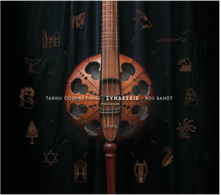 AFAE founding member and internationally renowned Australian sound artist Dr Ros Bandt has created a stunning 2 CD set of original sound works fusing old and new, east and west influences with her cross-cultural modern Australian spike fiddle, the tarhu. This extraordinarily resonant instrument probes 6 world heritage sites in Europe and the Pacific, accompanies poetry in ancient Greek, Persian and Maltese, and connects with artists from China, Vietnam, Thailand, Turkey, the US, Greece, Crete, Germany, Australia, Thailand, and Samoa. She investigates the environmental issues of global warming in the arctic, water usage, fishing and farming ethics, and the biosphere reserves of America. The connections trace back to the worlds oldest bird, the lyrebird and the longest continuing culture on earth in Australia. Ros Bandt is at once a composer, sound artist and skilled musician, as at home in the concert hall, the gallery, the electro-acoustic studio, the internet or the bush as these CDs show. The works created over a decade interpret each acoustic space individually, from improvised solos and duets to elaborate electro-acoustic symphonies and award winning multi- channel works remixed. But it's the sonorous worlds she creates that are so worth the deep listening they invite. Tarhu Connections launched on May 19th 2016 at the 14th century Venetian Sabbionara Gate in Hania, Crete at the opening of the collaborative exhibition Listening through the Walls, one of the tracks on the CD. It is in Hania that the Bandt developed her unique style on the tarhu informed by 30 years of performing , recording, sound research and acoustic ecology practice. Seven tracks were made at this incredible location. Purchase the double album online via the Hearing Places website. In support of the project Bandt produced the ABC Radio Feature ‘Listening through the walls’ commissioned for Soundproof in 2016 which can be streamed online here. This radio feature explores one of the most ancient city states, Hania in the northwest of Crete, where walls have been built, destroyed, reformed and recycled according to its chequered history. It's one of the most contested morcels of land—changing hands from the Greeks, to the Christians, the Ottomans and Venetians, all before the two world wars. In this radio piece, Bandt collaborated with two local Haniot artists to take the people of Hania on an acoustic walk and discover through listening the changing identity of this fascinating town. Ros Bandt began making multi-channel sound works in 1972 and has been a pioneer in the interdisciplinary possibilities of acoustic ecology both in Australia and internationally. |
Categories
All
Archives
April 2023
|

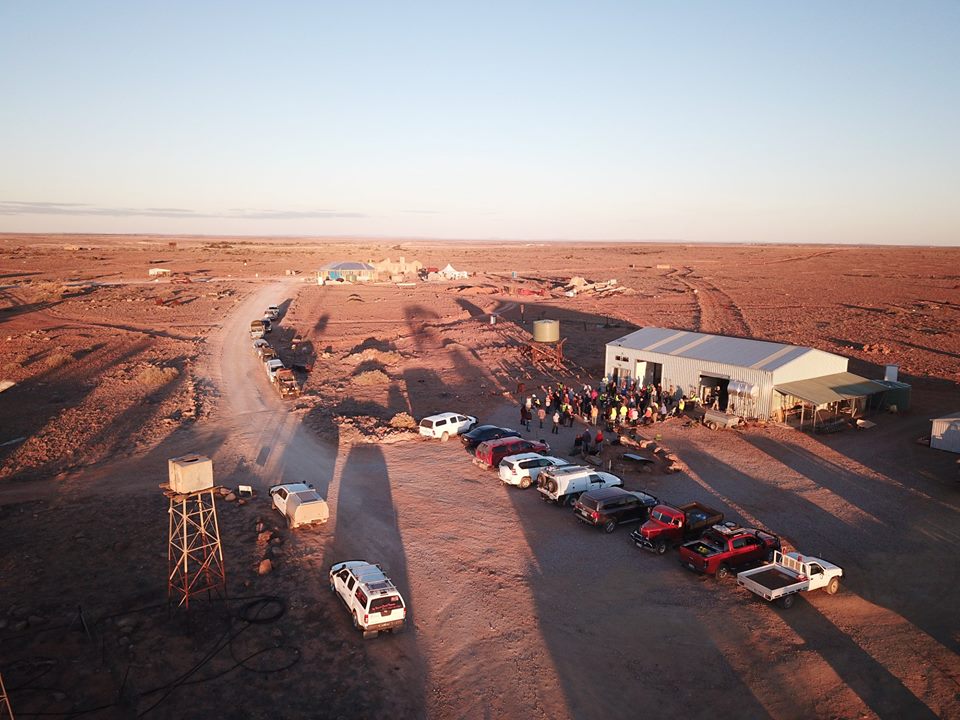
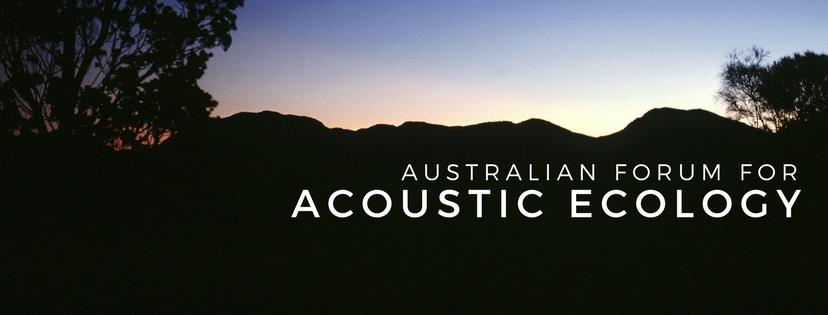
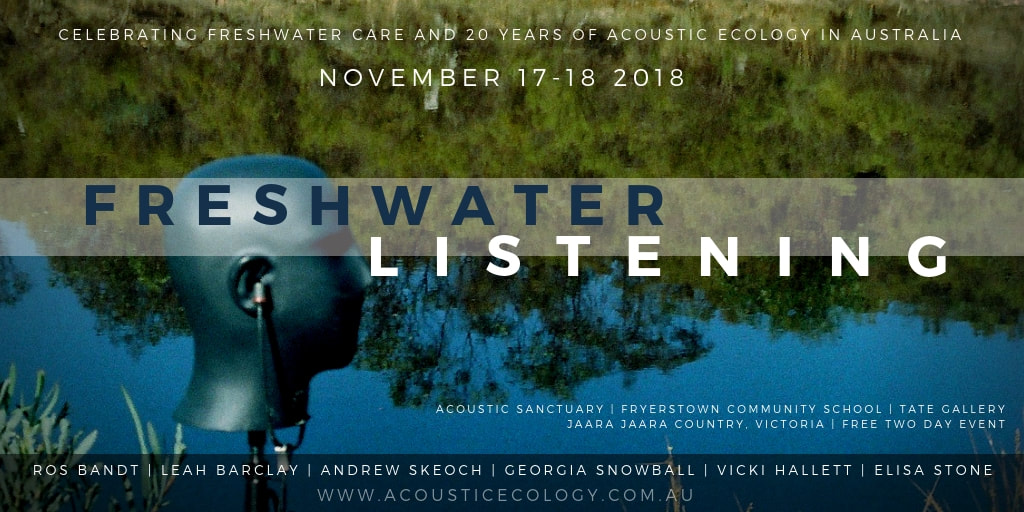
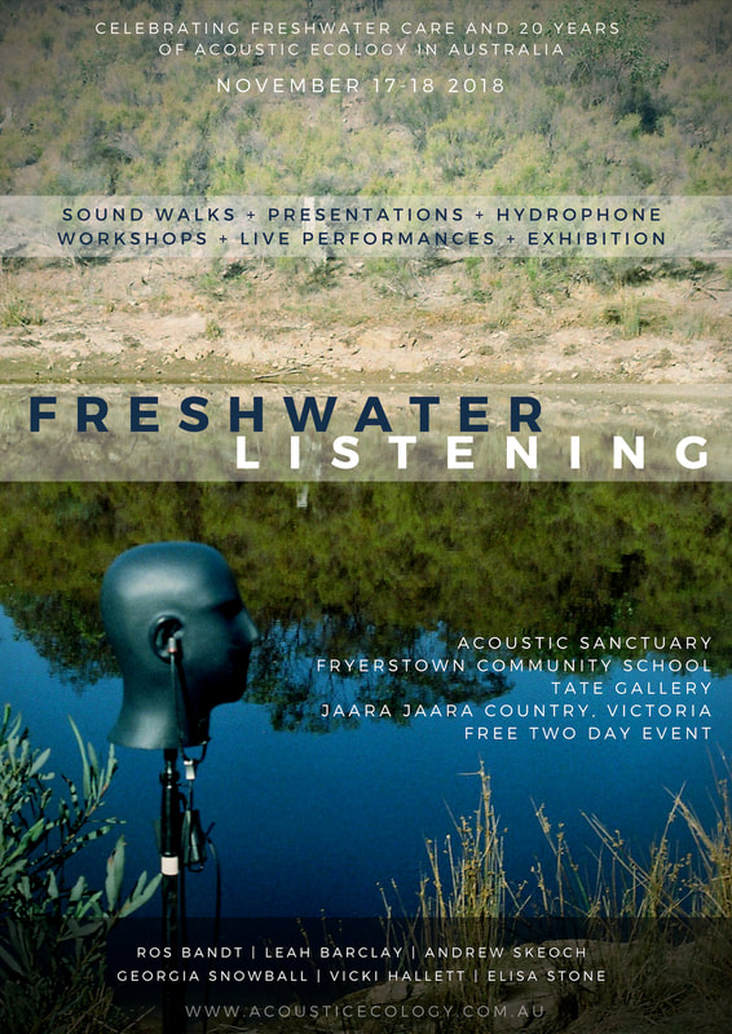
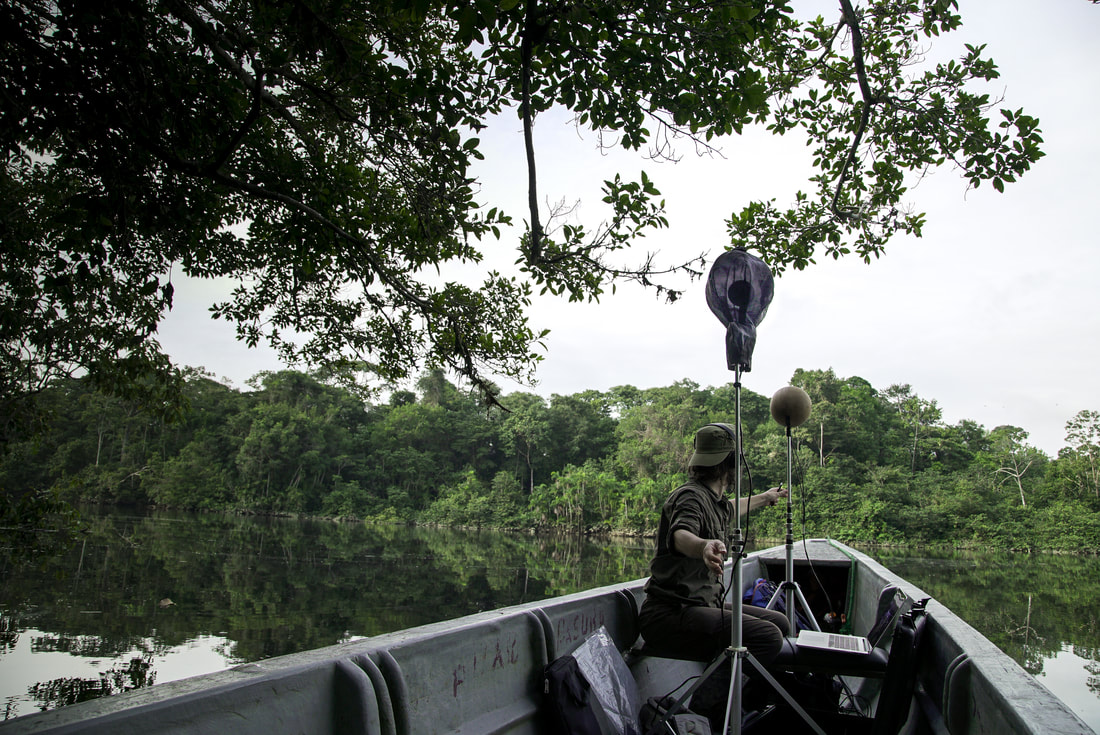
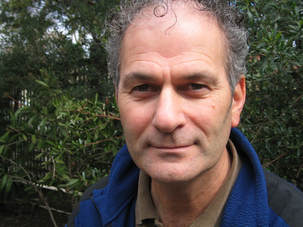
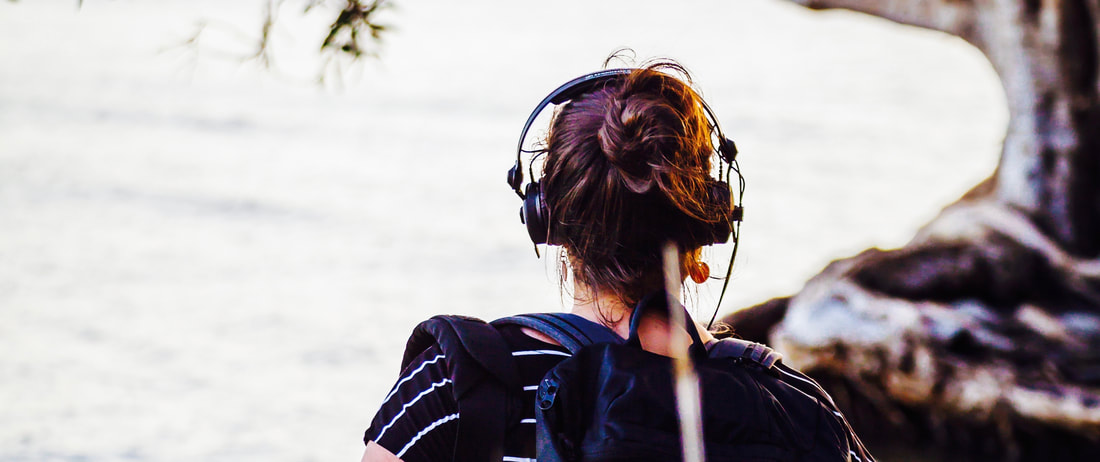
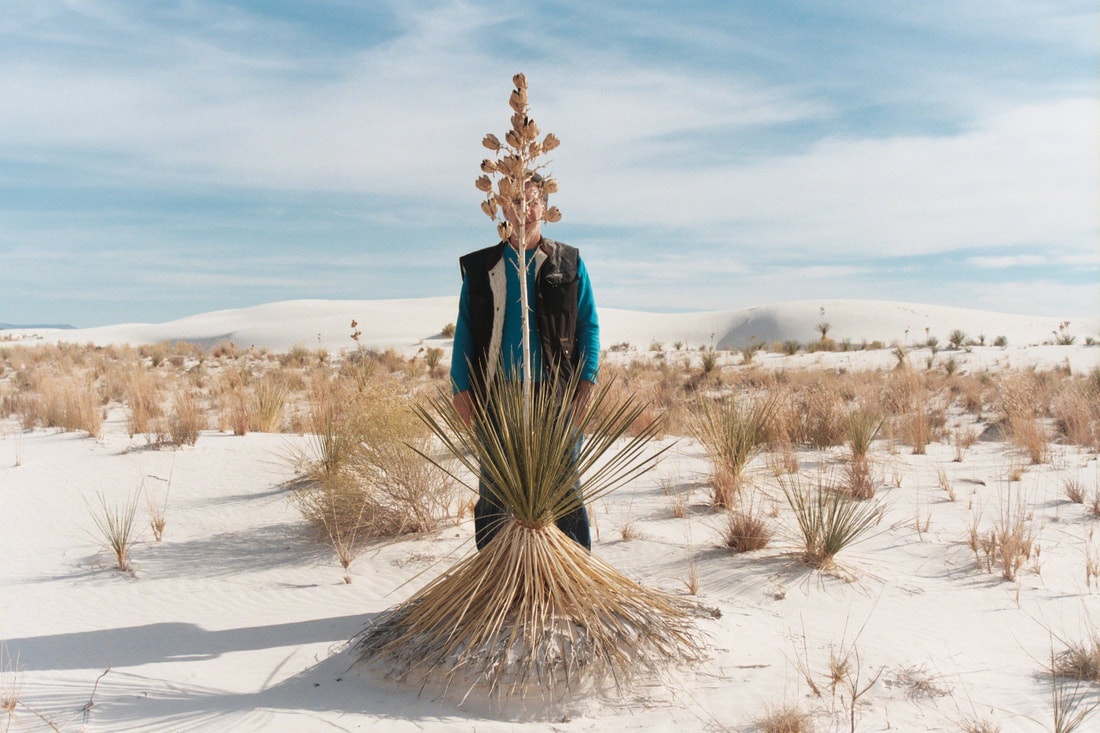
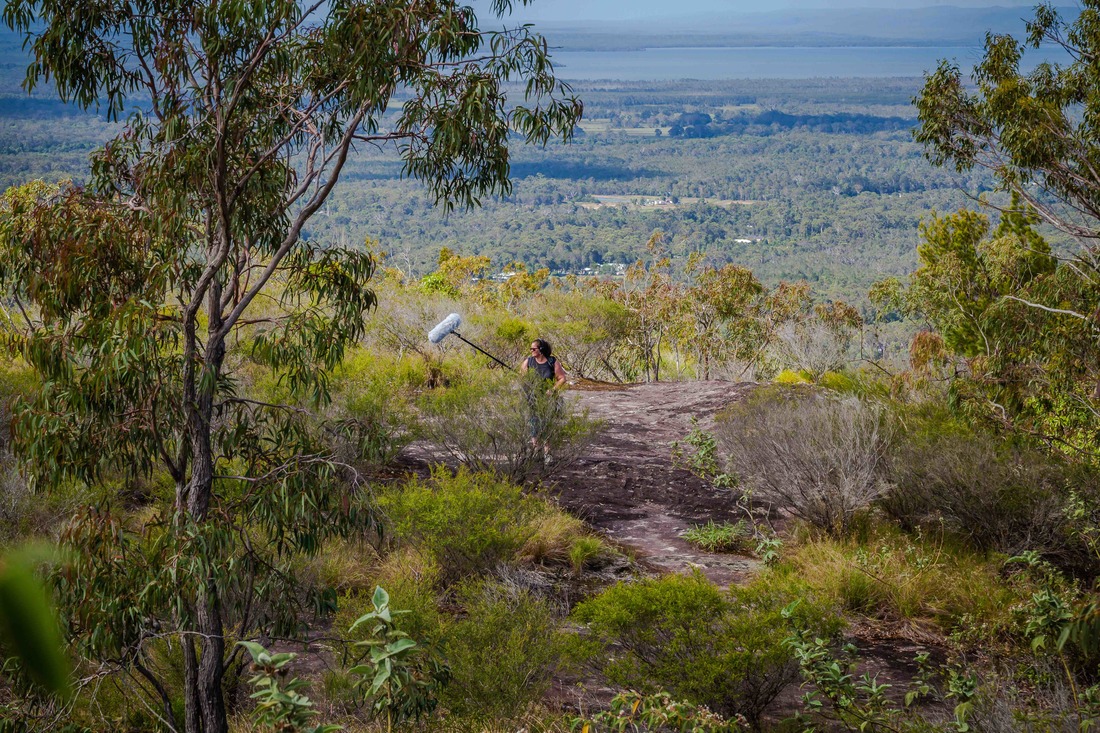
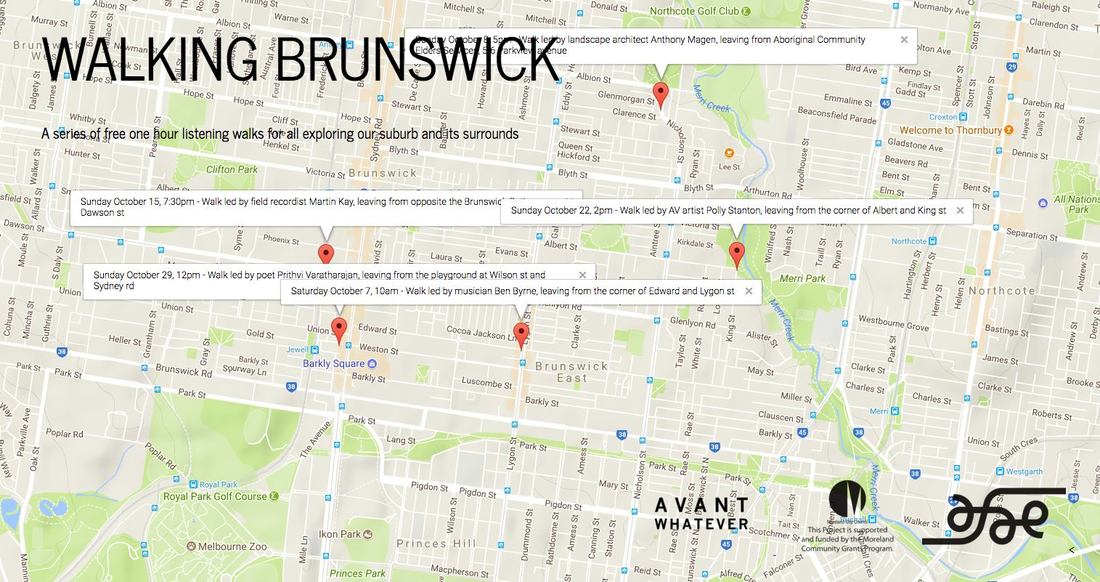
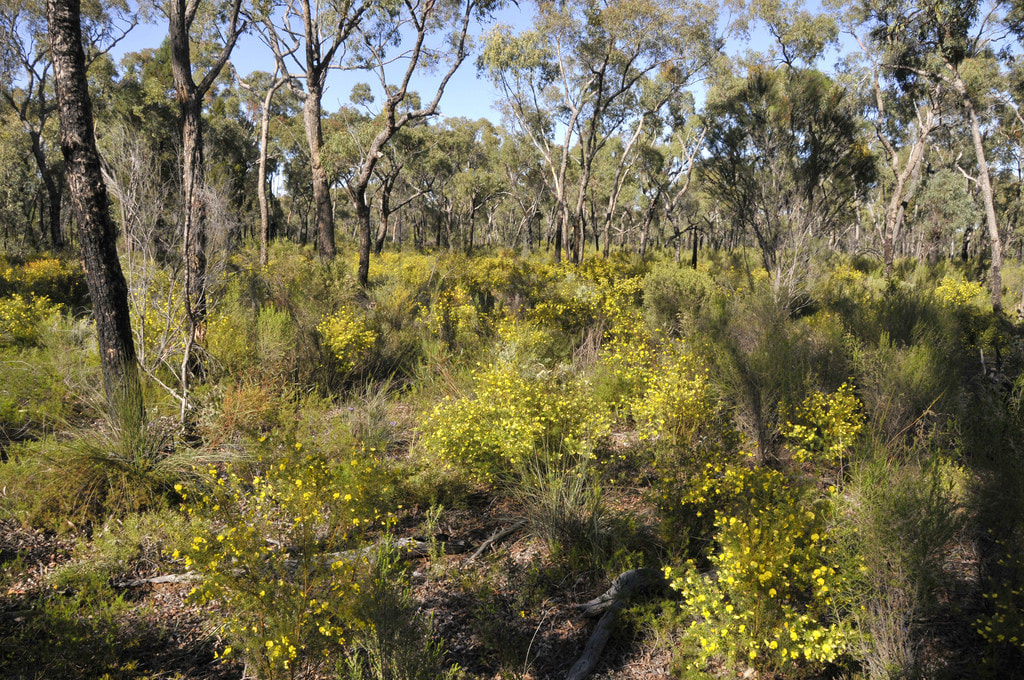
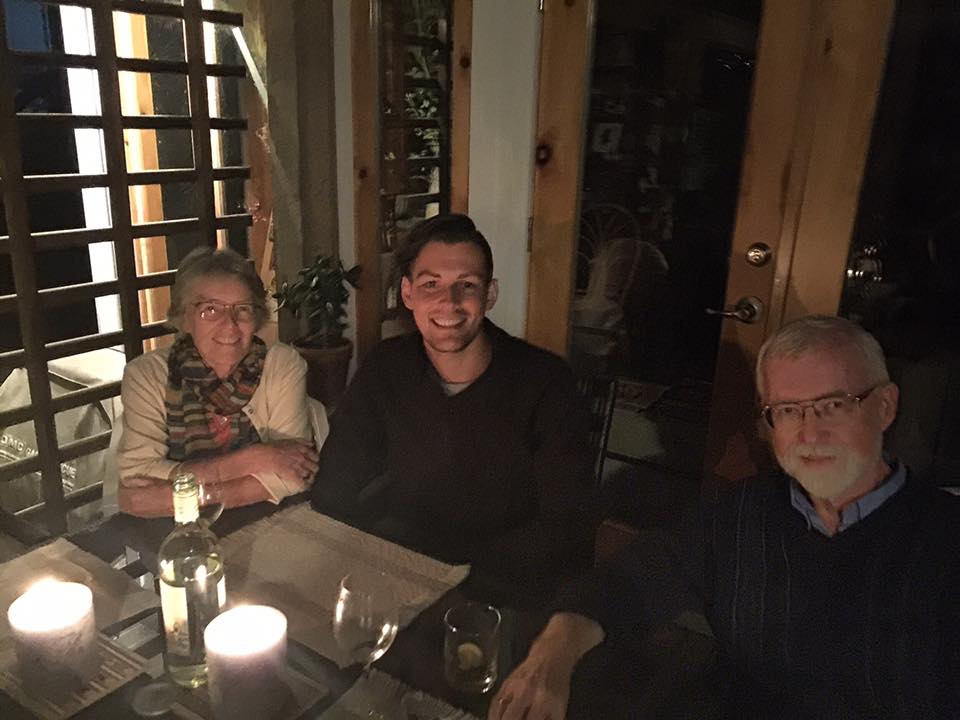
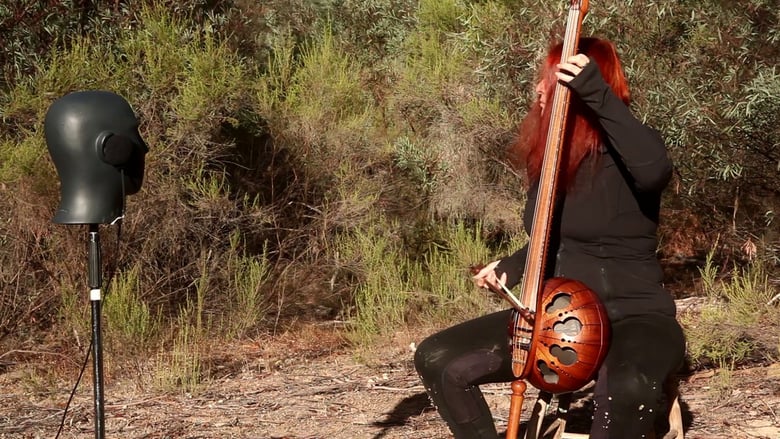
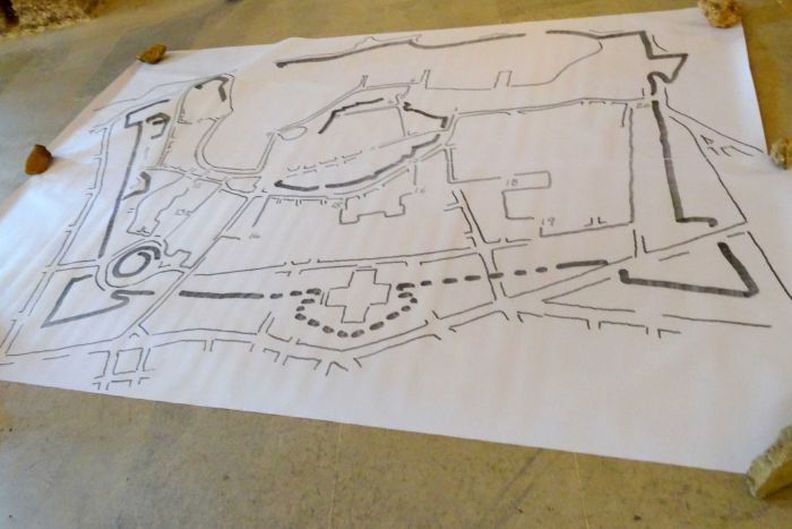
 RSS Feed
RSS Feed